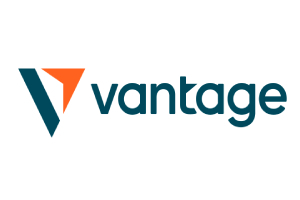Don’t invest unless you’re prepared to lose all the money you invest. This is a high-risk investment and you are unlikely to be protected if something goes wrong. Take 2 minutes to learn more
Bitcoin, initially conceived as a peer-to-peer decentralized financial network, has evolved into a store of value (SOV) to safeguard capital against inflation. With a market capitalization of approximately $1.3 trillion, Bitcoin stands as the most valuable cryptocurrency, pioneering the use of blockchain technology.
Bitcoin ETFs offer investors direct exposure to BTC within a regulated framework. Governed by the SEC, these ETFs are listed on traditional stock exchanges such as the Nasdaq Market and the New York Stock Exchange (NYSE). To effectively mirror Bitcoin’s price movements, ETFs hold actual Bitcoin through custodial arrangements, ensuring alignment with market performance.
Investing in either Bitcoin ETFs or directly in Bitcoin entails considering several key factors, including accessibility, risk, returns, fees, regulation, and personal familiarity with cryptocurrency platforms. Let’s delve into each aspect:

Accessibility
Accessibility is a crucial factor in investment decisions. Direct ownership of Bitcoin allows investors to engage in trading 24/7 on cryptocurrency exchanges, offering immediate access to the market. Conversely, Bitcoin ETFs are traded during conventional market hours on stock exchanges, potentially limiting access for investors seeking instant transactions.
Risk Assessment
Risk assessment is paramount in evaluating investment options. Direct ownership of Bitcoin exposes investors to various risks, including hacking attempts, exchange failures, and the potential loss of private keys. On the other hand, Bitcoin ETFs, being regulated entities, are generally considered safer, albeit still carrying risks associated with the issuing company’s performance.
Returns
Returns are a significant consideration for investors. Both cryptocurrencies track the price movements of Bitcoin (BTC), offering similar long-term returns. However, investors should be mindful of potential fees associated with Bitcoin ETFs, which may impact overall returns.
Fees
Fees play a role in the cost-effectiveness of investment choices. While Bitcoin may involve varying transaction fees depending on the chosen cryptocurrency exchange, Bitcoin ETFs typically incur trading fees ranging from 0.25% to 1.5%. Investors should factor in these fees when assessing the overall profitability of their investment.
Control
Regulatory oversight provides a layer of security for investors. Bitcoin operates on a decentralized network with minimal regulation, while Bitcoin ETFs are subject to SEC regulation, ensuring custody and regulatory compliance. This regulatory framework offers investors greater confidence in the integrity of Bitcoin ETFs.
 Investor Familiarity
Investor Familiarity
Investor familiarity and preference are crucial in determining the most suitable investment approach. Those well-versed in cryptocurrency platforms and blockchain technology may feel comfortable with direct ownership of Bitcoin. Conversely, traditional investors may find Bitcoin ETFs more accessible and convenient within their conventional brokerage accounts.
Conclusion
Both Bitcoin and Bitcoin ETFs offer exposure to the cryptocurrency market, each with its own set of advantages and considerations. Traditional investors may gravitate towards Bitcoin ETFs for their ease of access and regulatory oversight, while cryptocurrency enthusiasts may prefer Bitcoin for its decentralization and potential participation in decentralized finance (DeFi) through options like Wrapped Bitcoin (WBTC). Ultimately, the choice between the two hinges on not only the investor preferences, but also risk tolerance, and investment objectives.
How to buy Lucky Block – Guide, Tips & Insights | Learn 2 Trade
Note: Learn2.trade is not a financial advisor. Do your research before investing your funds in any financial asset, product, or event. We are not responsible for your investment results.
- Broker
- Min Deposit
- Score
- Visit Broker
- Award-winning Cryptocurrency trading platform
- $100 minimum deposit,
- FCA & Cysec regulated
- 20% welcome bonus of upto $10,000
- Minimum deposit $100
- Verify your account before the bonus is credited
- Fund Moneta Markets account with a minimum of $250
- Opt in using the form to claim your 50% deposit bonus
Learn to Trade
Never Miss A Trade Again

Signal Notification
Real-time signal notifications whenever a signal is opened, closes or Updated

Get Alerts
Immediate alerts to your email and mobile phone.

Entry Price Levels
Entry price level for every signal Just choose one of our Top Brokers in the list above to get all this free.

 Investor Familiarity
Investor Familiarity


